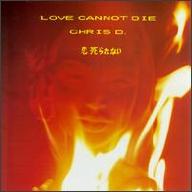Chris D.
Biography
One of the more distinctive and challenging figures on the early Los Angeles punk scene, Chris D. -- real name Chris Desjardins -- was an aspiring filmmaker and underground poet who was supporting himself as an English teacher when he met John Doe and Exene Cervenka at a poetry workshop in Venice, California in 1976. Doe and Cervenka, who would form the band X, were familiar with the nascent Los Angeles punk underground, and through them, Chris discovered an outlet for his acerbic verse and corrosive vocal style, which he first honed in high school as a member of a fledgling garage band. In 1977, Desjardins began writing for the pioneering L.A. punk fanzine Slash, and assembled the first version of his best-known band, the Flesh Eaters, which melded sharp, disjointed music with Desjardins's neo-gothic apocalyptic verbal assault. The Flesh Eaters released their first album, No Questions Asked, in 1980 on Desjardins's Upsetter label, which had previously issued the seminal L.A. punk compilation Tooth and Nail. The group's second album, 1981's A Minute to Pray, A Second to Die, made a much bigger splash, thanks to the participation of a short-lived Flesh Eaters line-up featuring John Doe and D.J. Bonebrake of X, Dave Alvin and Bill Bateman of the Blasters, and Steve Berlin, who would later join Los Lobos. The album was released by Ruby Records, an offshoot of the Slash label where Desjardins was given free rein to produce bands he liked; among the albums he produced for the label were the Gun Club's Fire of Love, the Dream Syndicate's The Days of Wine and Roses, and Green on Red's Gravity Talks. (Desjardins also helped mix the Misfits' first full-length album, Walk Among Us, which was issued by Ruby). While the Flesh Eaters remained a presence on the L.A. punk scene, the band was unable to maintain a steady lineup, and after 1983's A Hard Road to Follow, Desjardins split up the group. In 1984, he began work on a semi-acoustic set of country-influenced songs for the album Time Stands Still, which was recorded with a revolving group of musicians credited as Divine Horseman. While be began pursuing a somewhat more aggressive style, Desjardins continued using the Divine Horseman name for his recorded output until 1989, when he released the album I Pass for Human with his new band, Stone by Stone. The style of I Pass for Human recalled the brittle, confrontational spirit of the Flesh Eaters' music -- so much so that for the group's next project, 1991's Dragstrip Riot, Desjardins opted to pull the name the Flesh Eaters out of the mothballs and apply it to the band. While the group's profile dropped considerably outside of Los Angeles during the 1990s, Desjardins and his various Flesh Eaters lineups continued to record and gig regularly, with SST Records releasing three albums by the band during the decade, while Desjardins revived the Upsetter label for 1999's Ashes of Time. A Chris D. solo set (his first as such), Love Cannot Die, was issued by Sympathy for the Record Industry in 1995. When not occupied with his musical career, Desjardins writes screenplays, acts in independent motion pictures, writes for several film publications (his specialty is Japanese crime films), and is a programmer for the Los Angeles repertory cinema The American Cinemateque. ~ Mark Deming, Rovi
Top Tracks
Albums
Videos
Close

















